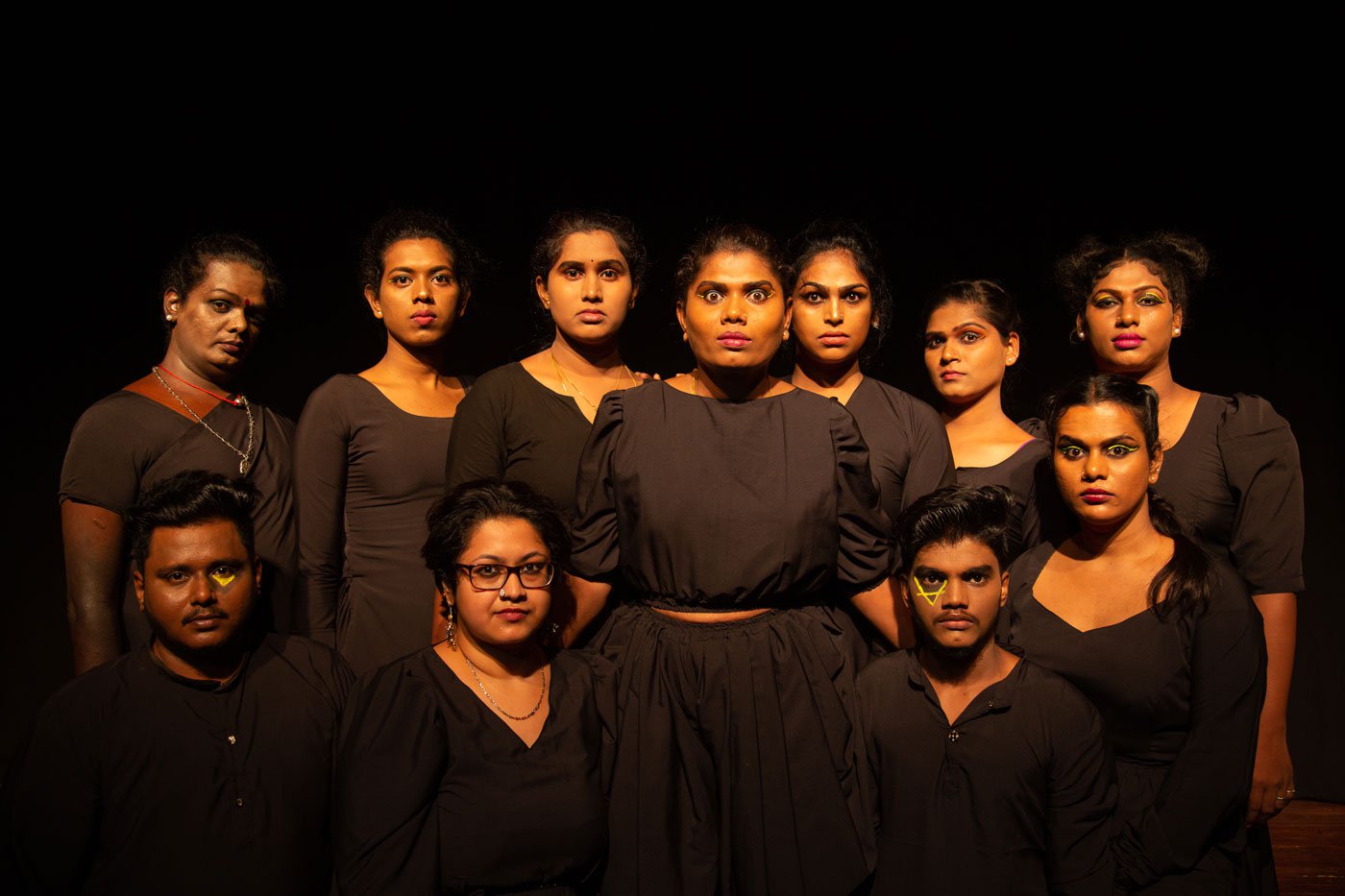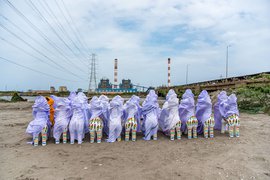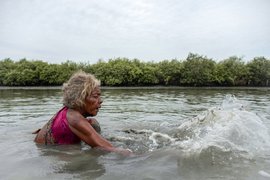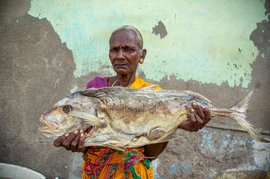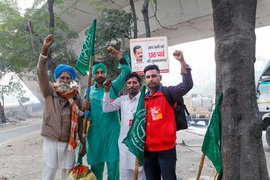The class is silent and attentive as the biology teacher explains how chromosomes determine sex in a human being. “Females have two X chromosomes while males have one X and a Y chromosome. If XX chromosomes pair up with a Y, then you get a person like the one sitting there,” says the teacher, pointing towards a student. The class erupts into laughter as the student stands up awkwardly.
This is the opening scene in Sandakaranga (determined to fight), a play on the trans community. While the first part of the play talks about the humiliation and mockery a child is subjected to in a classroom for not fitting into the gender mandated roles, the second half recreates the lives of trans women and trans men subjected to violence.
The Trans Rights Now Collective (TRNC) focusses on Dalit, Bahujan and Adivasi voices of trans people across India. They presented the first performance of Sandakaranga in Chennai, Tamil Nadu on November 23, 2022. The hour-long play is directed, produced, and performed by a group of nine trans persons.
“November 20 is observed as International Trans Day of Remembrance, in memory of trans persons who have died. Their lives are not easy as they are often neglected by their families and ostracised by society and several are either murdered or die by suicide,” says Grace Banu, founder of TRNC.
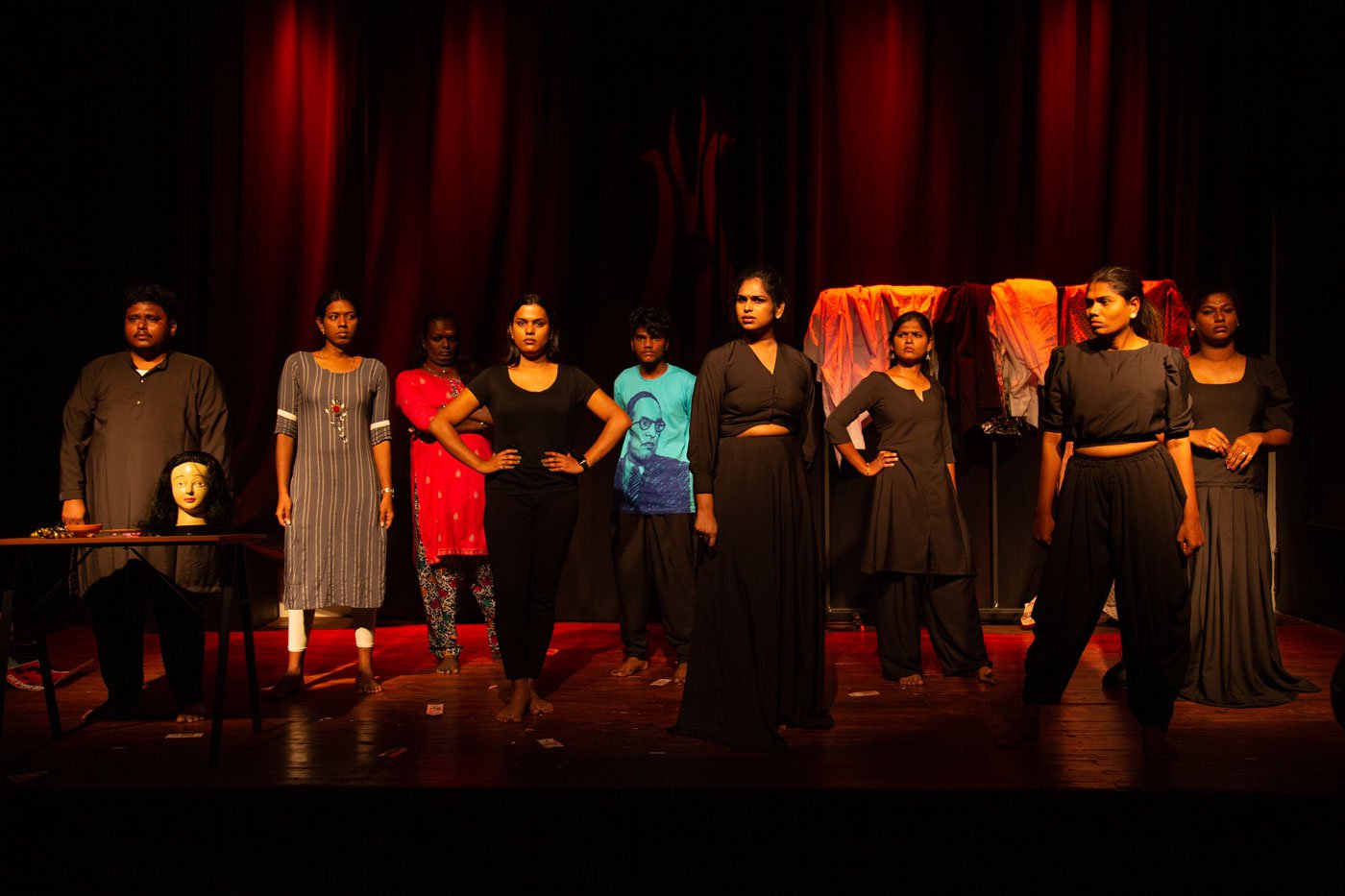
Artists at the rehearsal of the play Sandakaranga in Chennai in Tamil Nadu
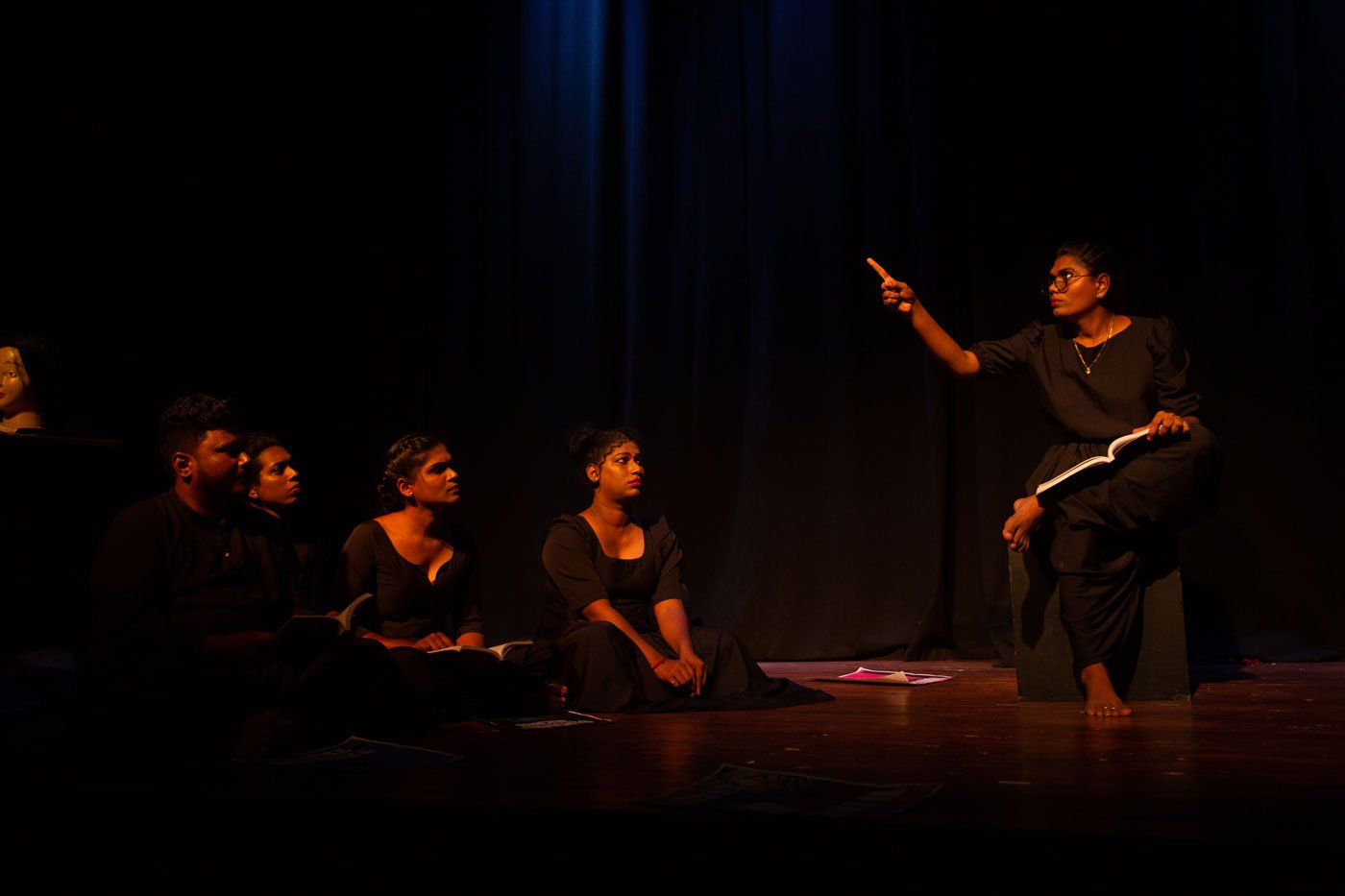
Theatre artist Grace Banu plays the role of a teacher who explains the chromosomes and sexual identity of the trans community in a classroom setting
“Each year, this number has been increasing. When there is violence against trans community, no one raises their voice against this. There is absolute silence in our society,” says Banu who is an artist and activist. “We had to start a conversation. That is the reason why we have named [the performance] Sandakaranga.”
In 2017, this play was staged as ‘Sandakarai’ and later in 2022 the title was changed to ‘Sandakaranga’. “We changed it to be inclusive of all trans persons,” explains Grace Banu. The nine artists in this play narrate the pain and suffering and question the ignorance and silence surrounding the verbal and physical violence towards the trans community. “This is the first-time trans men and trans women have come together on a stage,” says Negha, writer and director of Sandakaranga.
“We are always on survival mode. We are constantly working to pay our monthly bills or buy essentials. While working on this script, I was excited but also enraged that trans men and trans women never get an opportunity to act in theatre or cinema. I thought, we risk our lives to survive, why not take risks to produce a play,” adds Negha.
This photo story captures the moments that bring alive the erased history of trans community, reclaiming their right to live, and respect for their body.
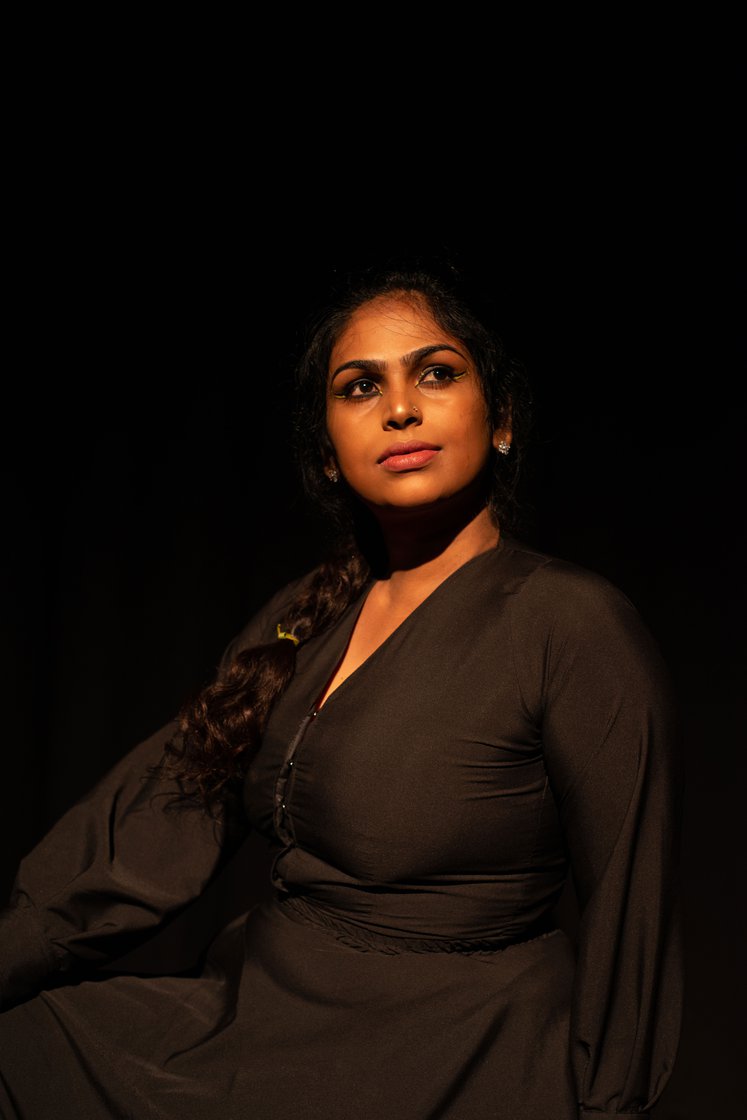
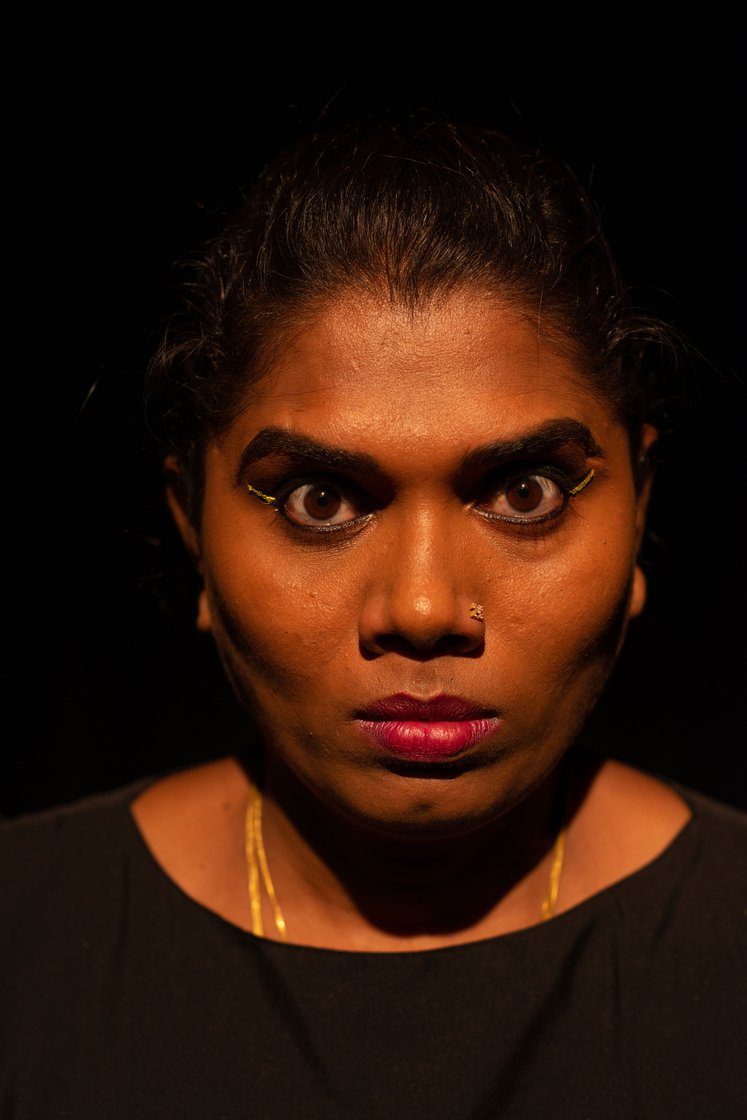
A portrait of Negha (left), actor and director of Sandakaranga, and Grace Banu (right), trans rights activist
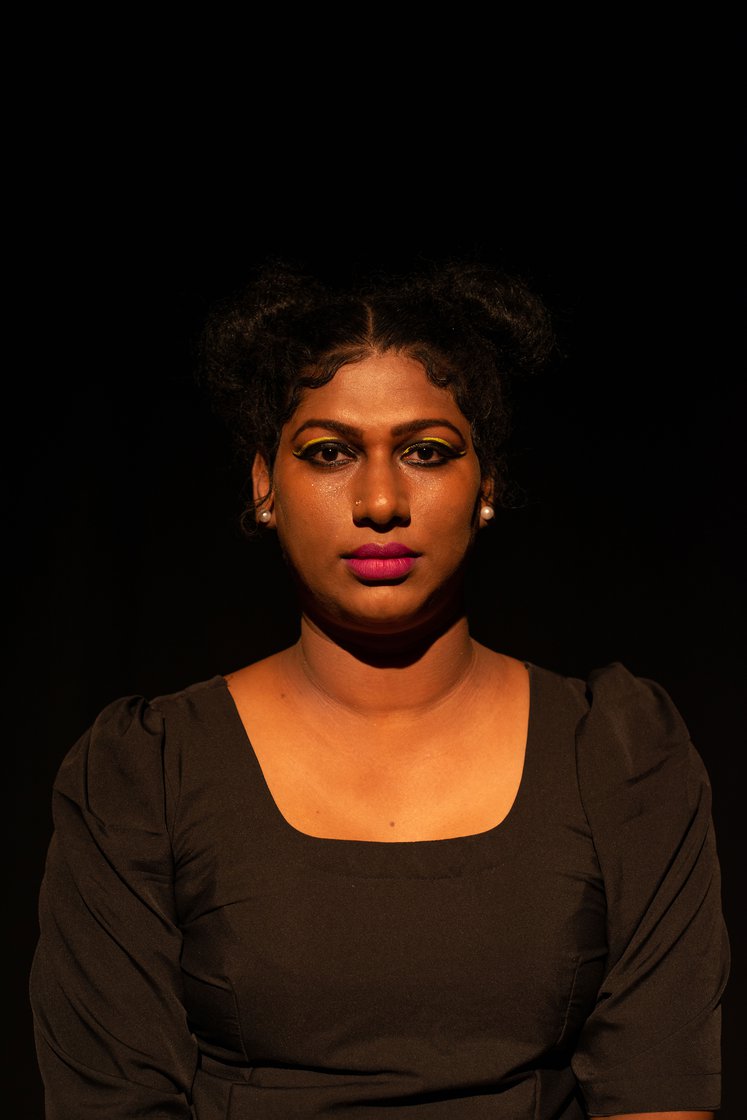
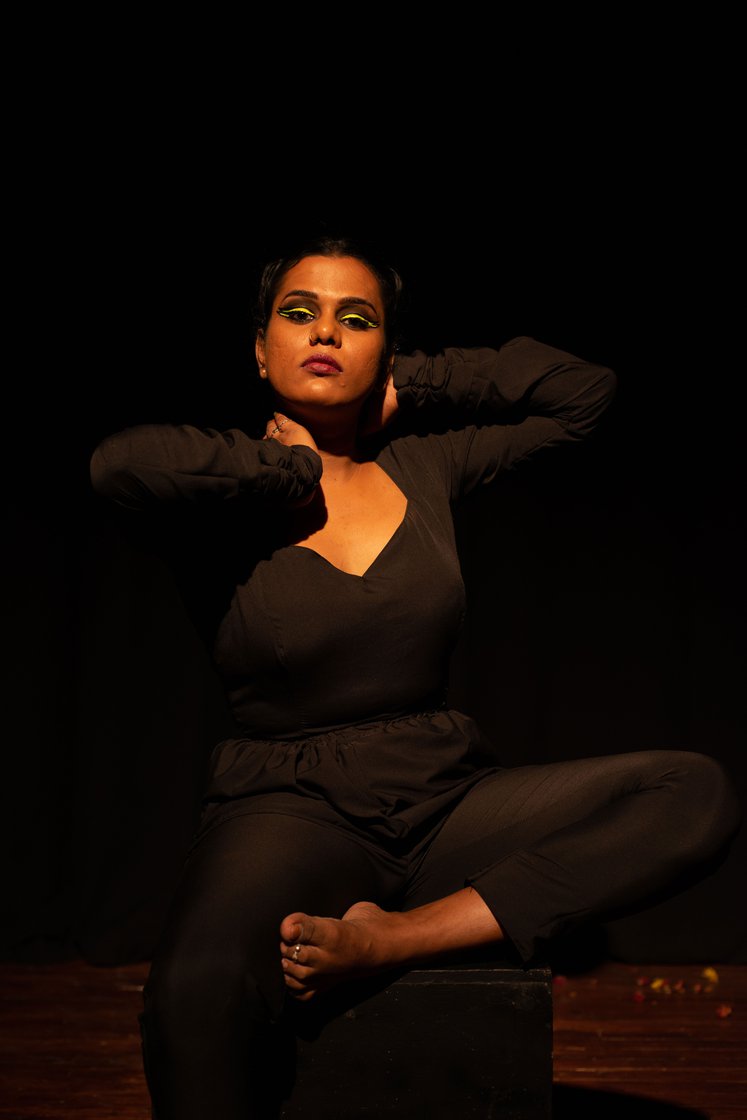
Left: Renuka J. is the cultural coordinator of Trans Rights Now Collective and a theatre artist. Right: Prazzi D. is also a theatre artist, and is pursuing a postgraduate degree in Costume Design and Fashion
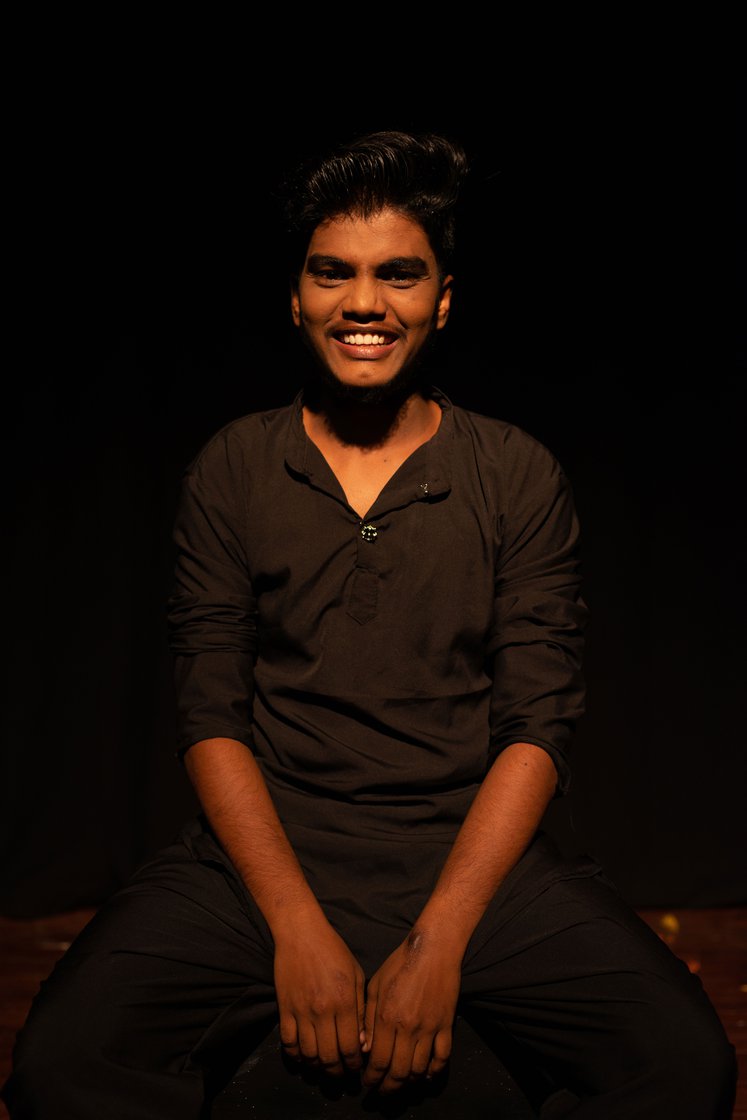
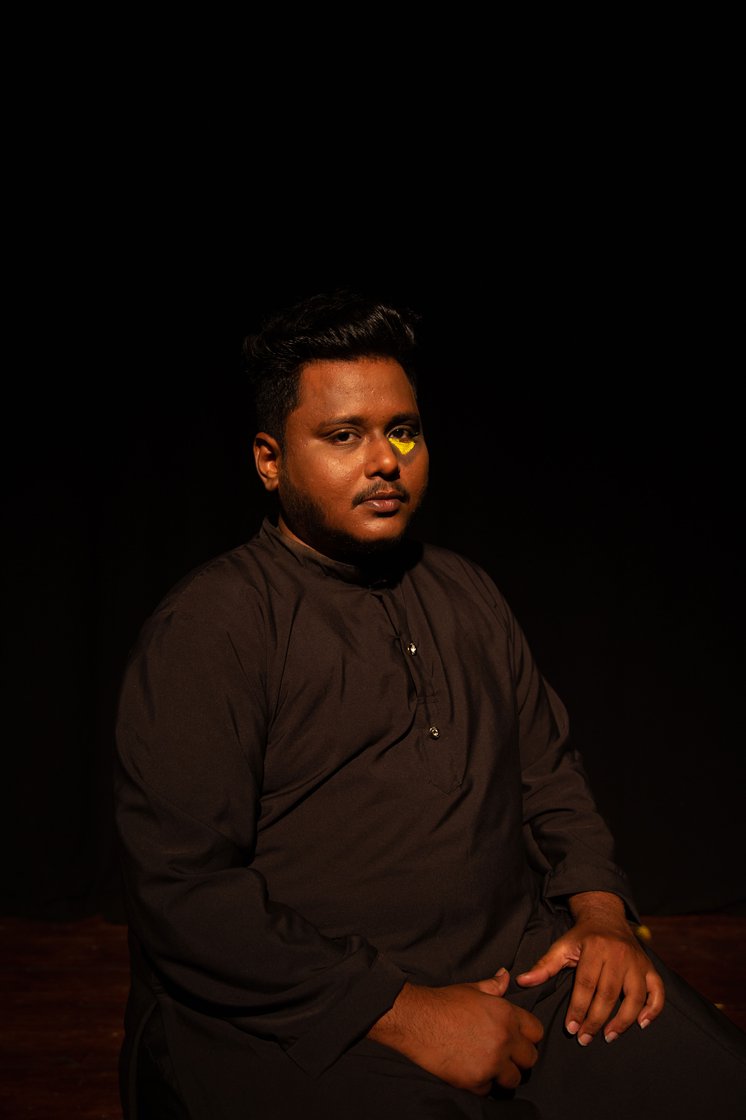
Rizwan S. (left) and Arun Karthick (right) work at a private firm, and are also theatre artists. 'Trans men are a minority in the community, and there is no visibility. This play tells the stories of trans men too,' says Arun
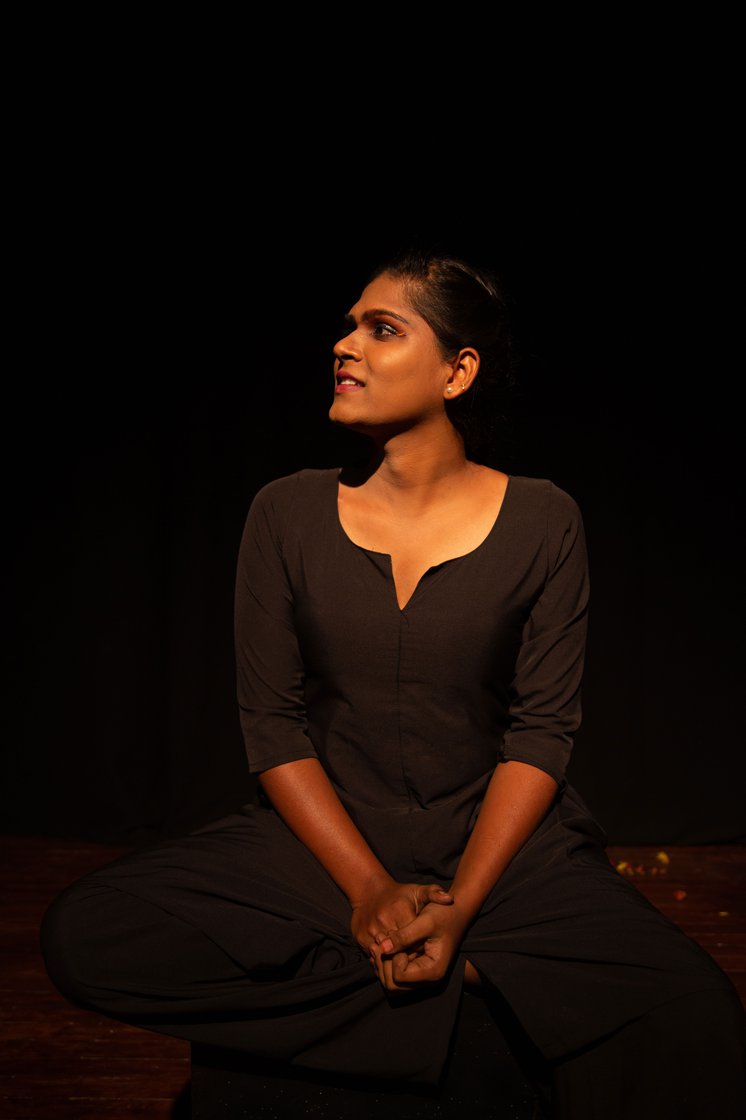
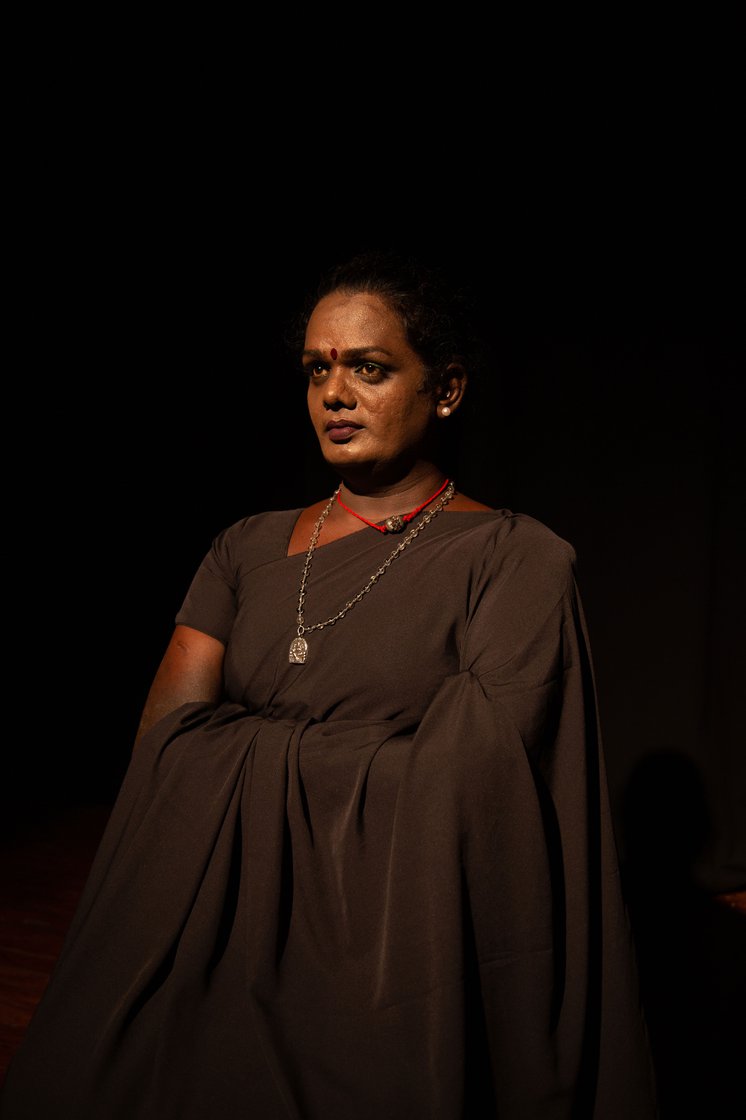
' I hope this play reaches out widely and gives strength to trans persons to live,' says Ajitha Y. (left), an engineering student, theatre artist and student coordinator at Trans Rights Now Collective. A portrait of Raghinirajesh (right), a theatre artist
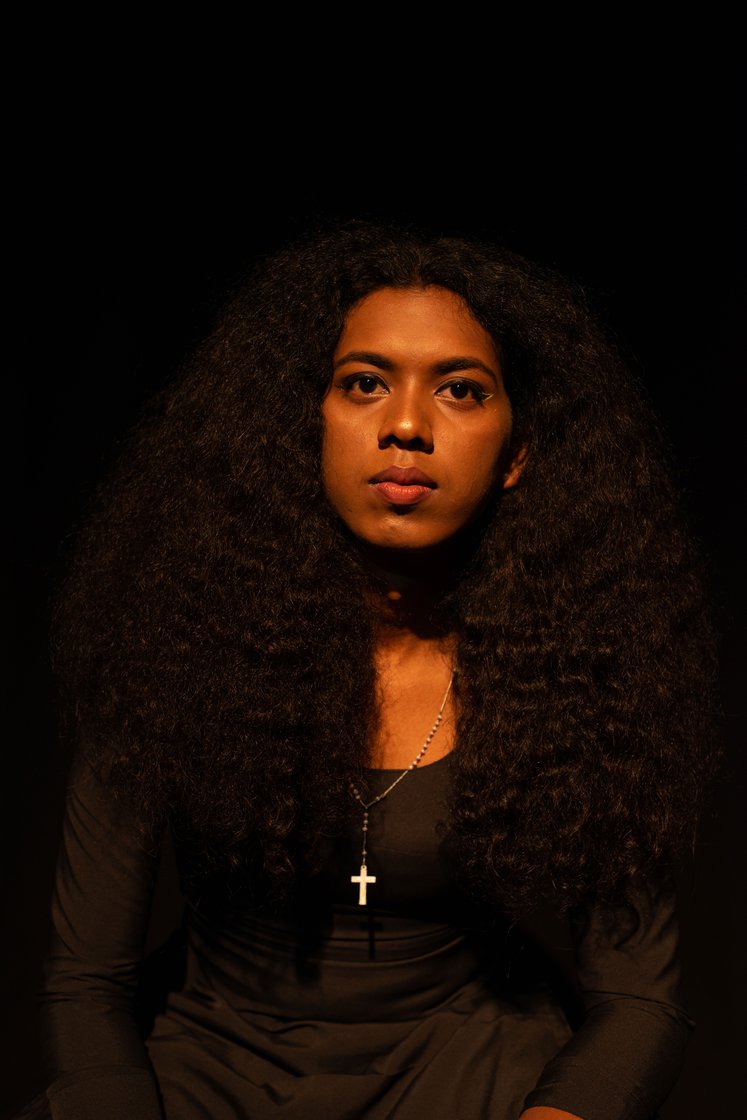
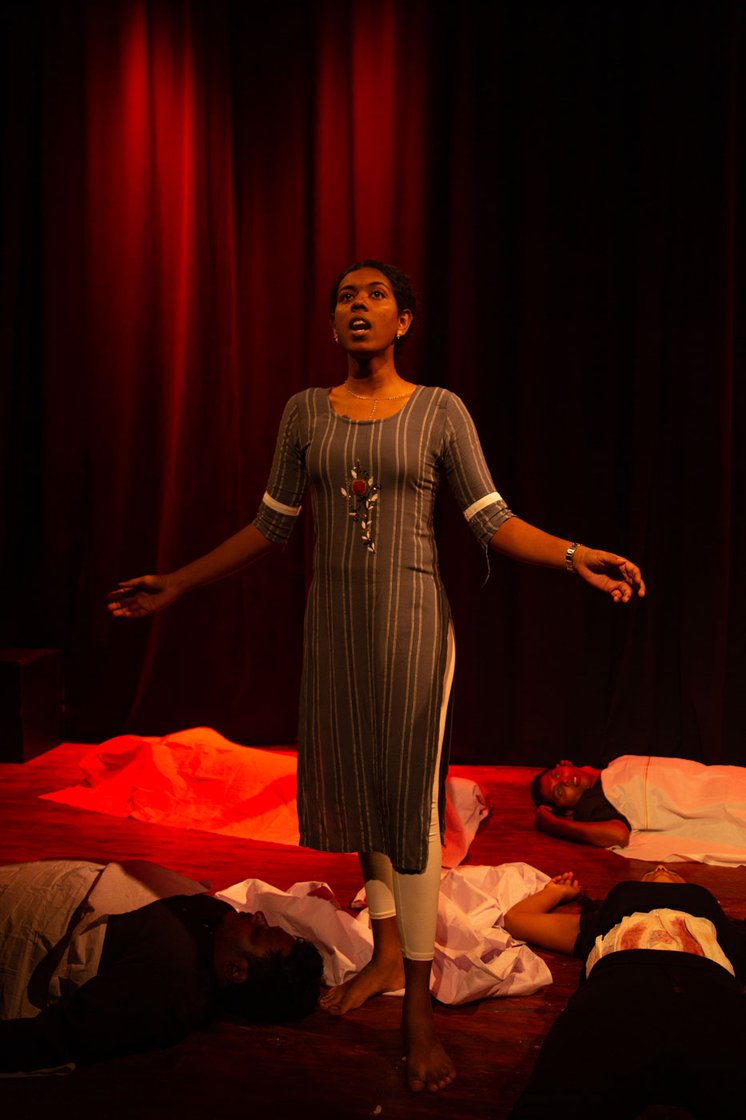
Left: A portrait of Nishathana Johnson, an analyst in a private company, and a theatre artist. “This play not only brings to light the sufferings and pain of trans persons, but depicts the lives of those who have died fighting for their rights.' Right: Artists at the rehearsal of the play in Chennai in Tamil Nadu
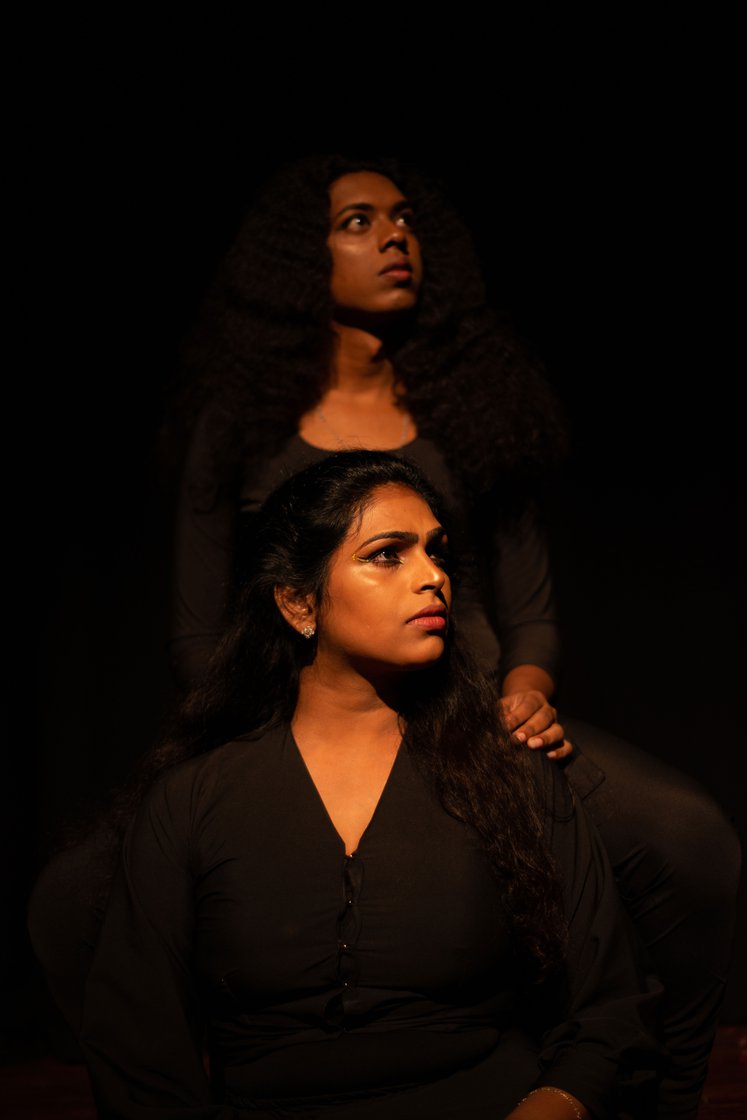
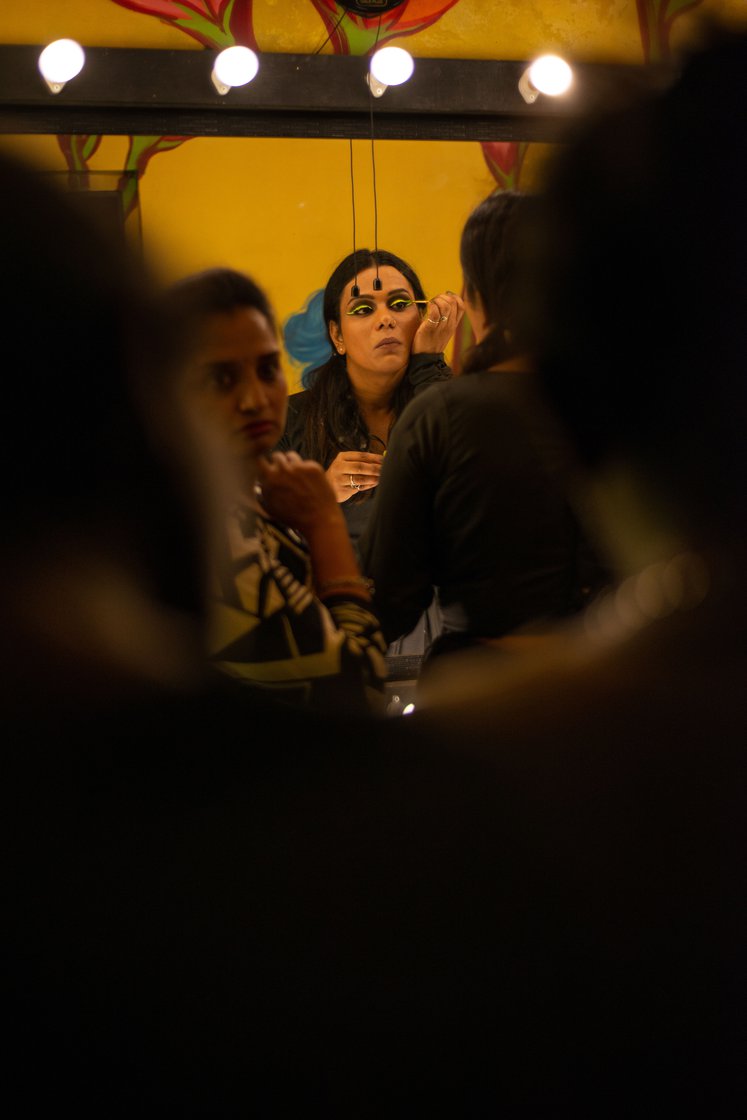
Left: Nishathana Johnson and Ajitha Y. in the play. Right: Prazzi D. does their own make-up
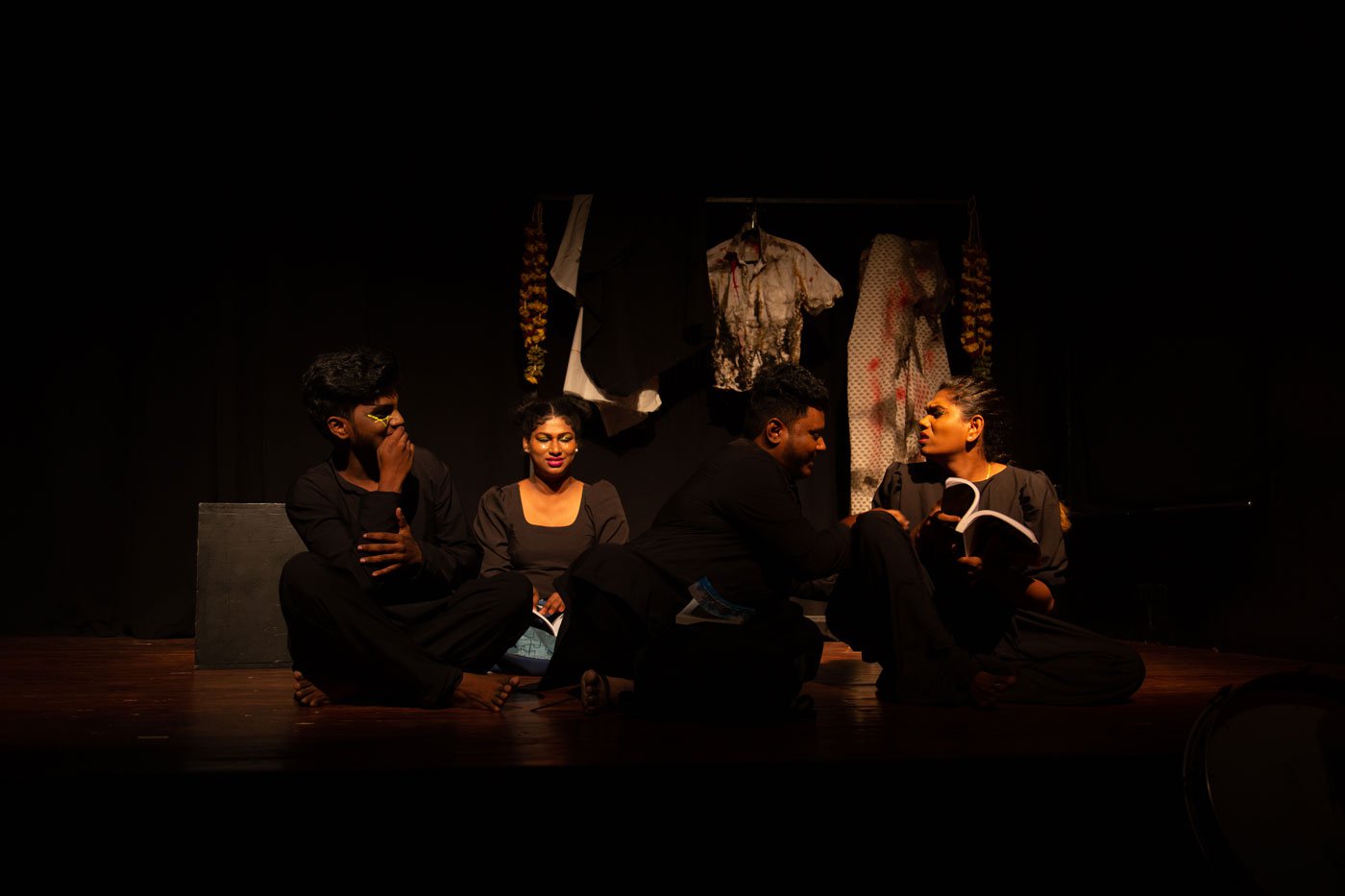
Sandakaranga depicts the abuse experienced by the trans community in educational institutions
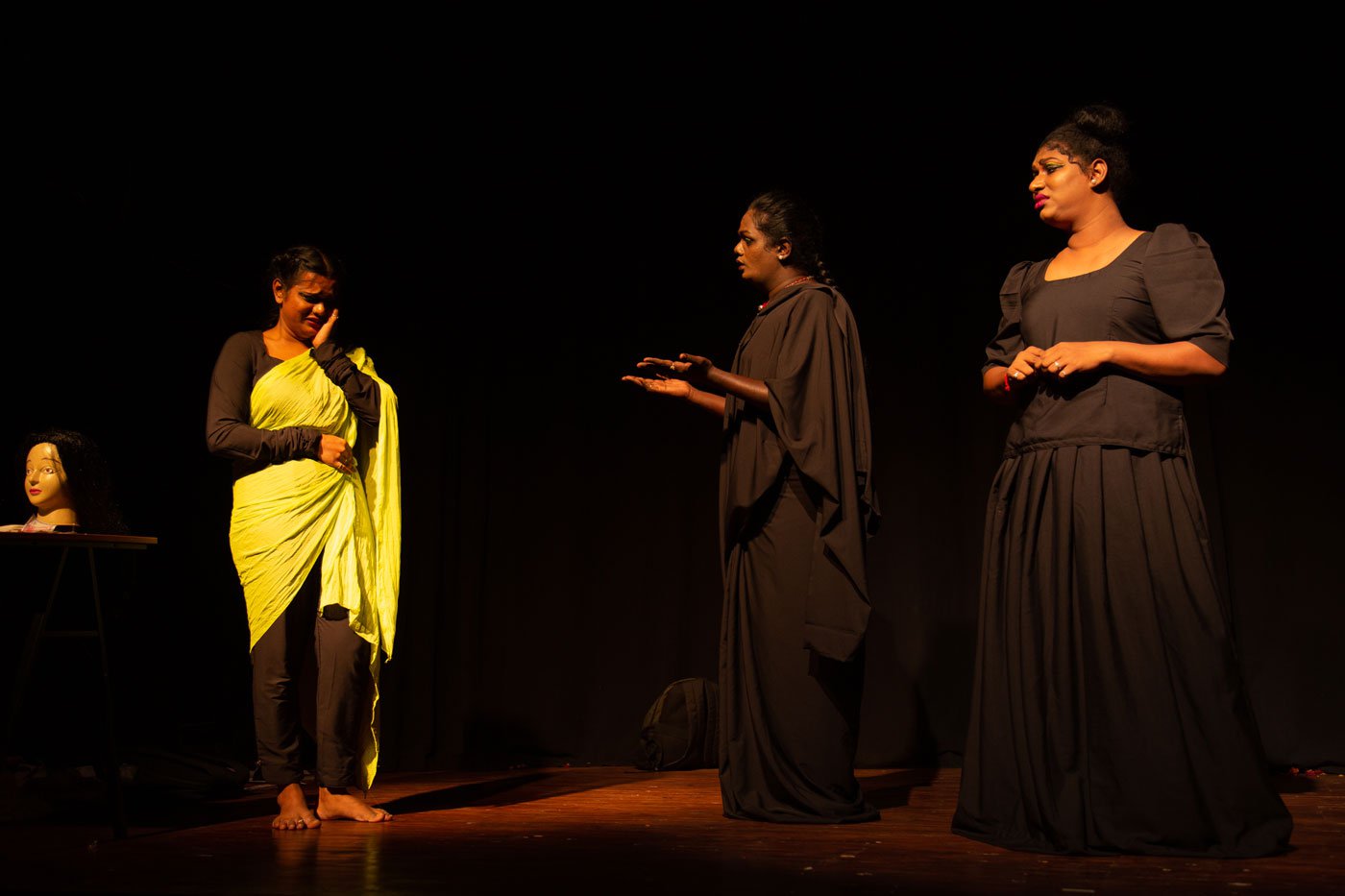
A scene that portrays how a trans woman is treated in her home
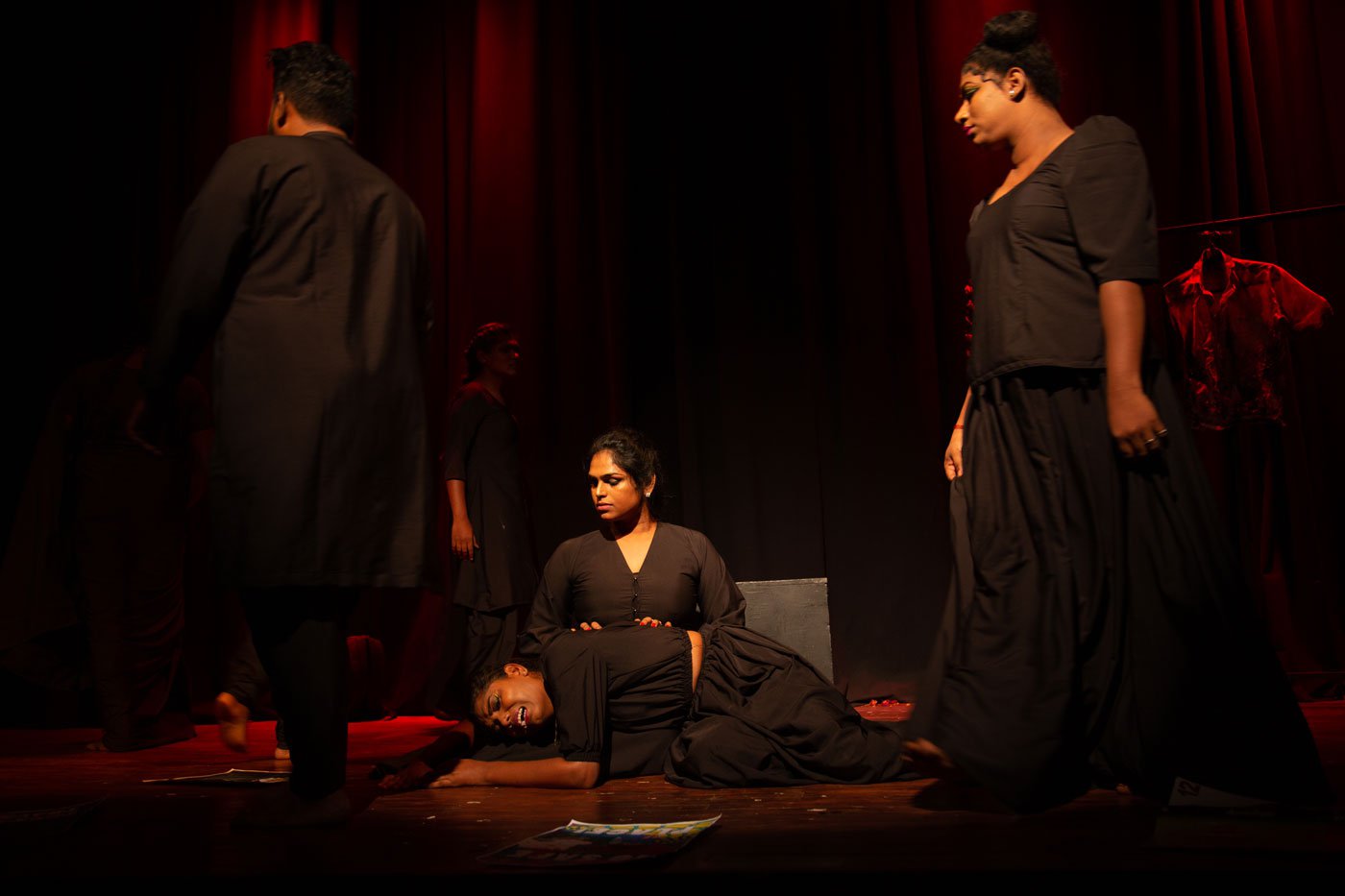
A scene from the play shows traumatic childhood experiences of conversion therapy, humiliation and abuse for not fitting into gender-mandated roles
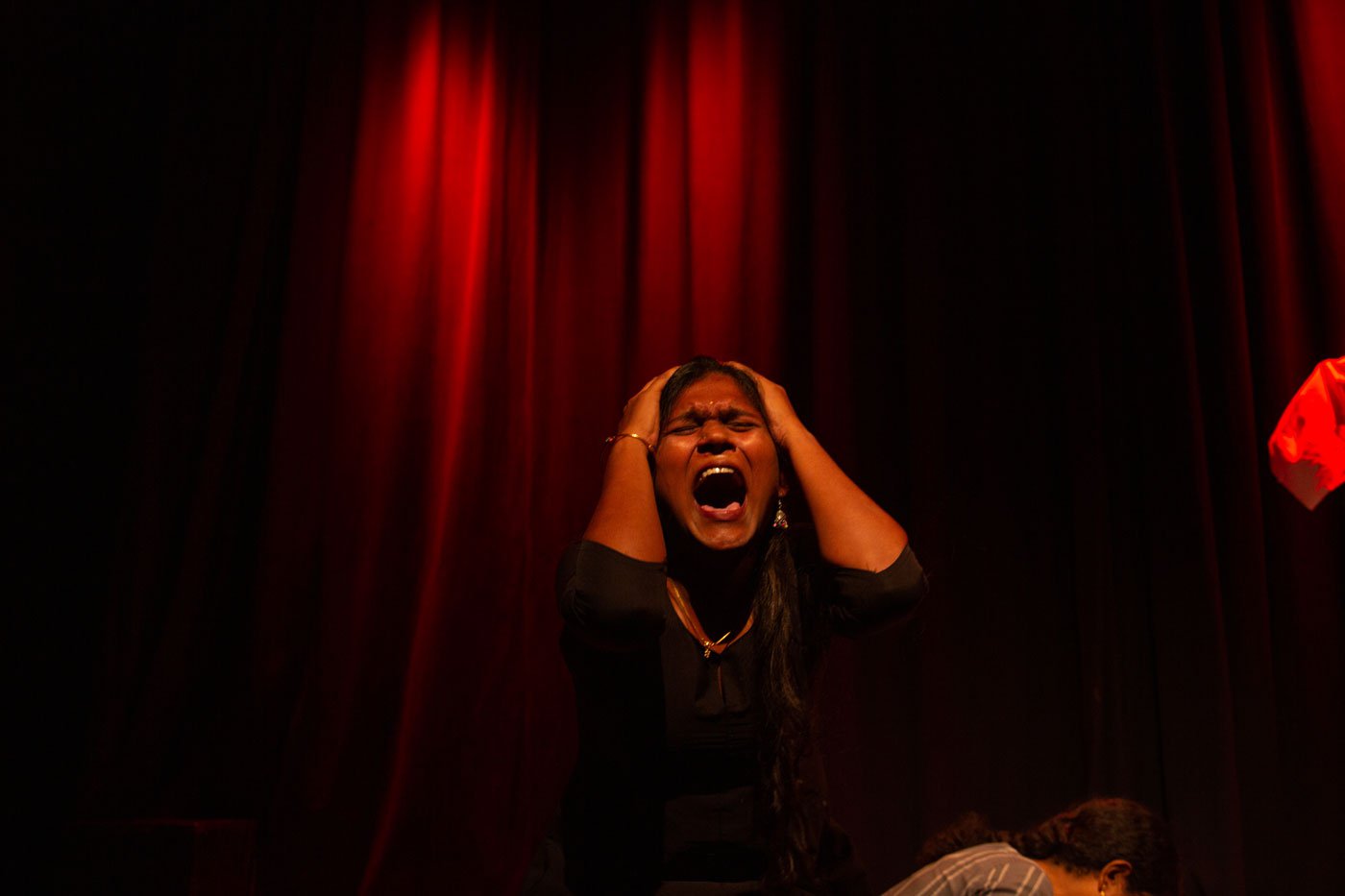
Artists at the rehearsal of Sandakaranga in Chennai, Tamil Nadu
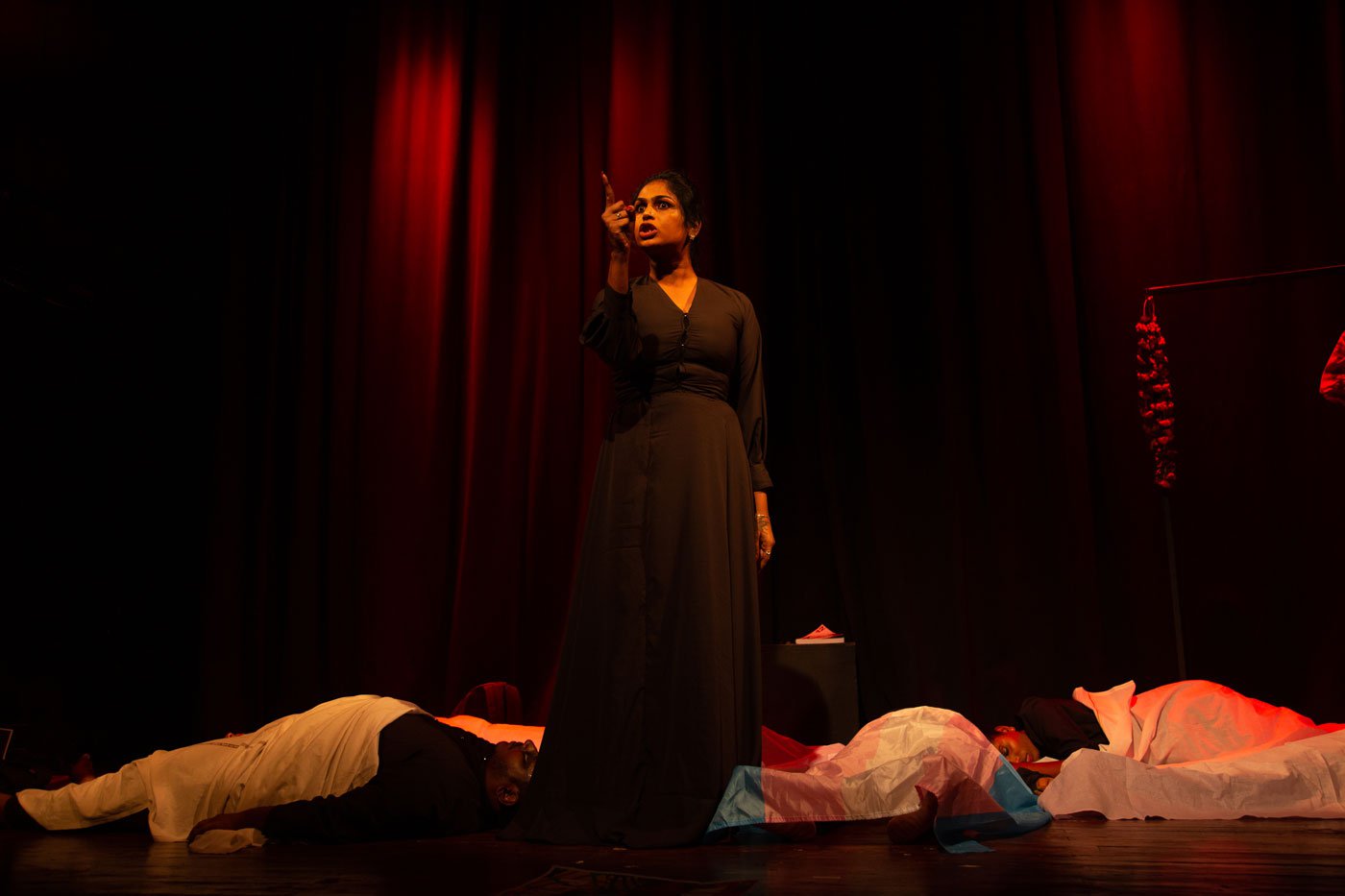
In the play, Negha questions the silence of society around harassment and violence experienced by the trans community
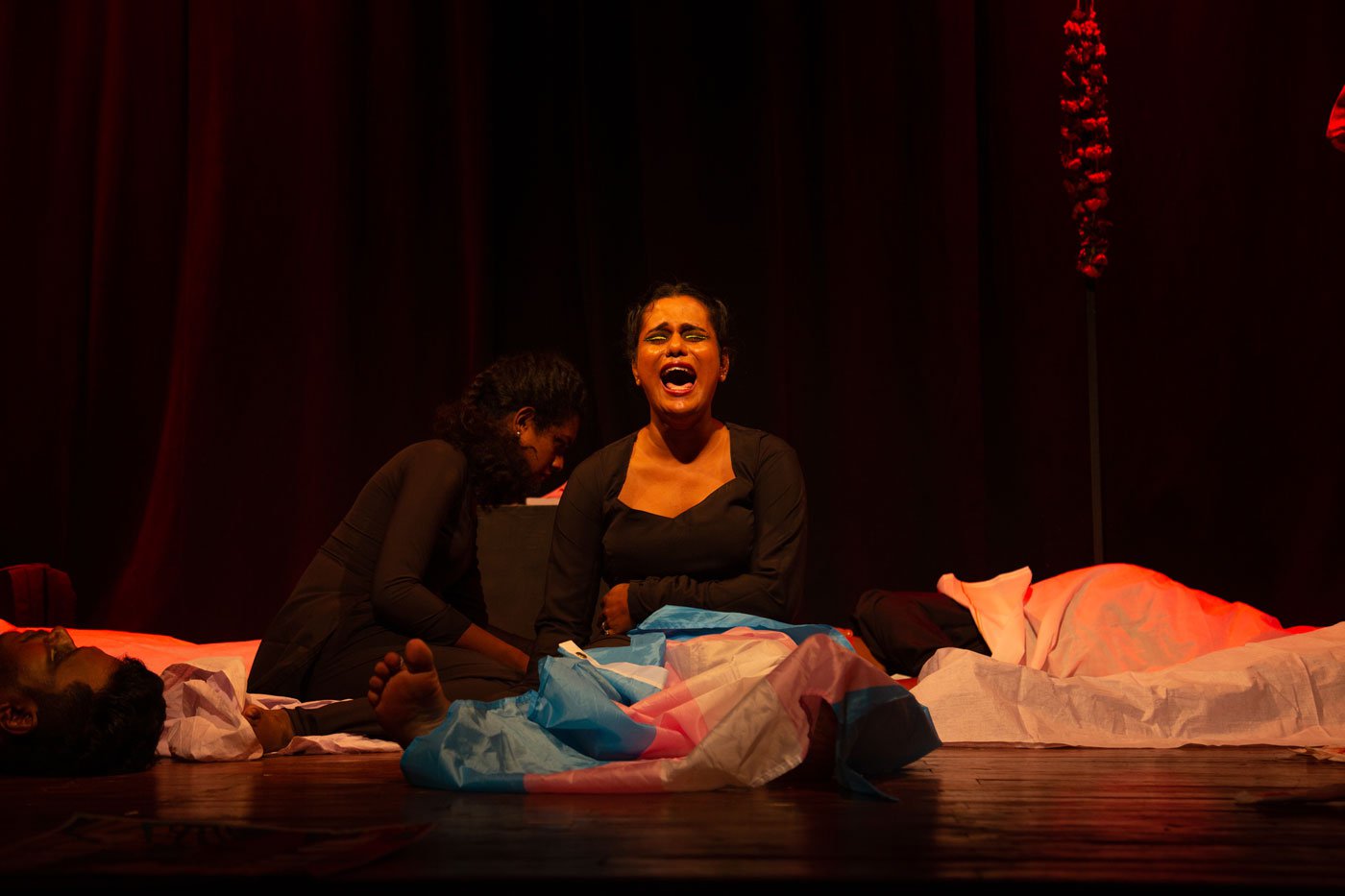
Prazzi D. depicts the pain and suffering of a person identifying as trans undergoing gender affirmation surgery
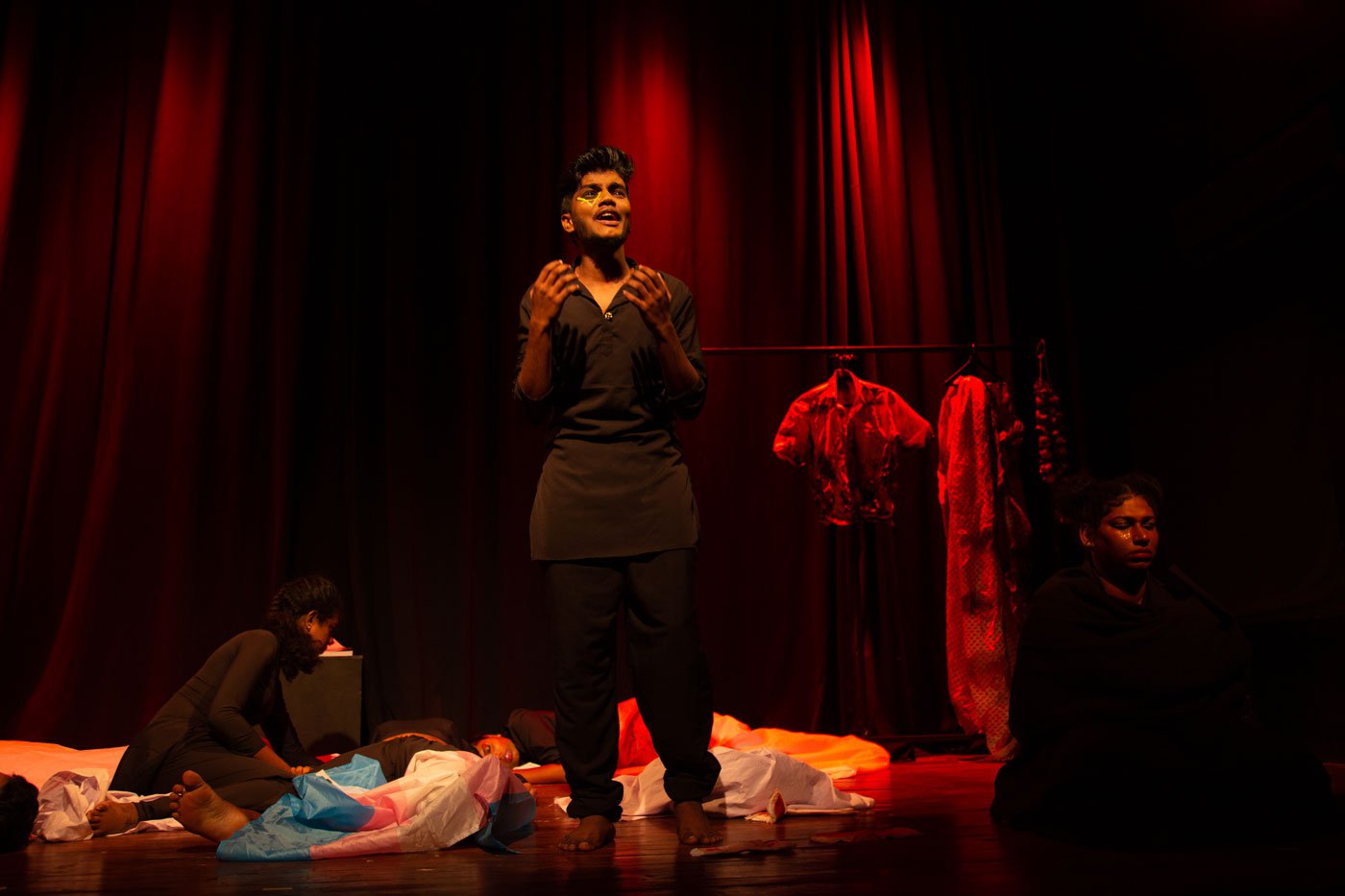
Rizwan S. plays the role of a trans man and depicts his experience of love, dejection and pain in a heteronormative society
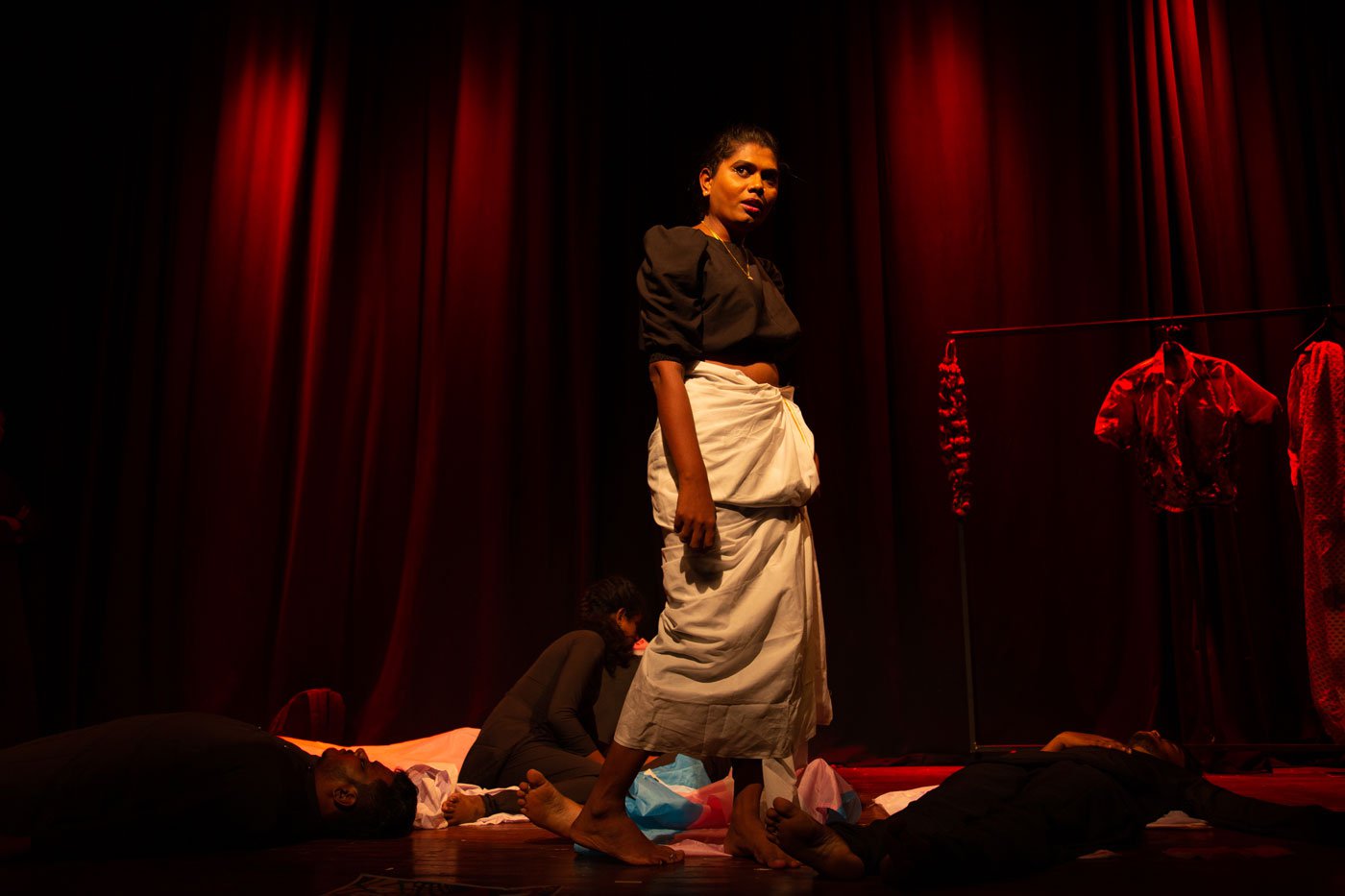
Grace Banu plays the role of a trans woman who is subjected to sexual assault by policemen
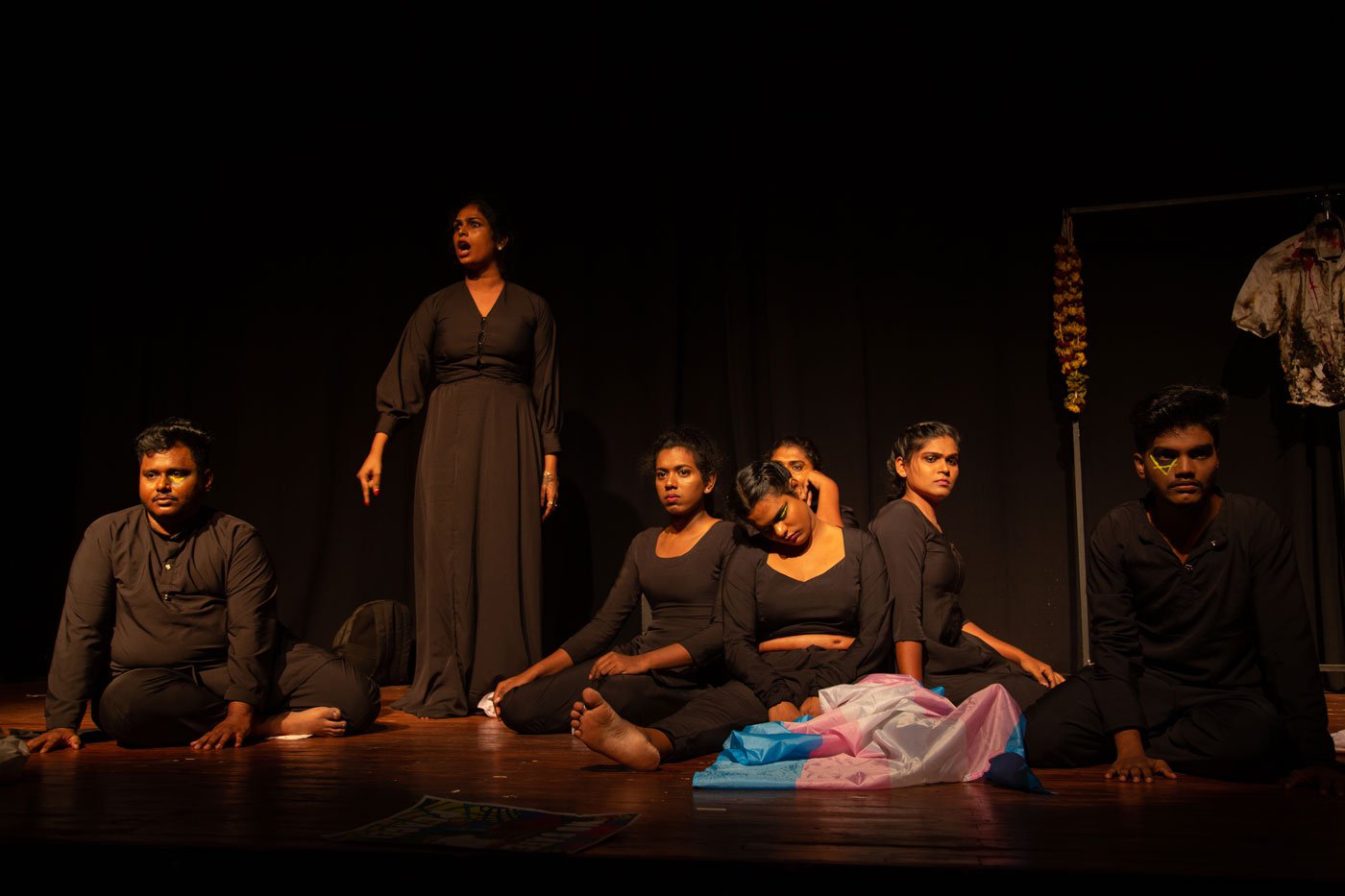
Negha (standing) calls for the audience to respect the bodies of trans people and to end body shaming, transphobia and violence against the trans community
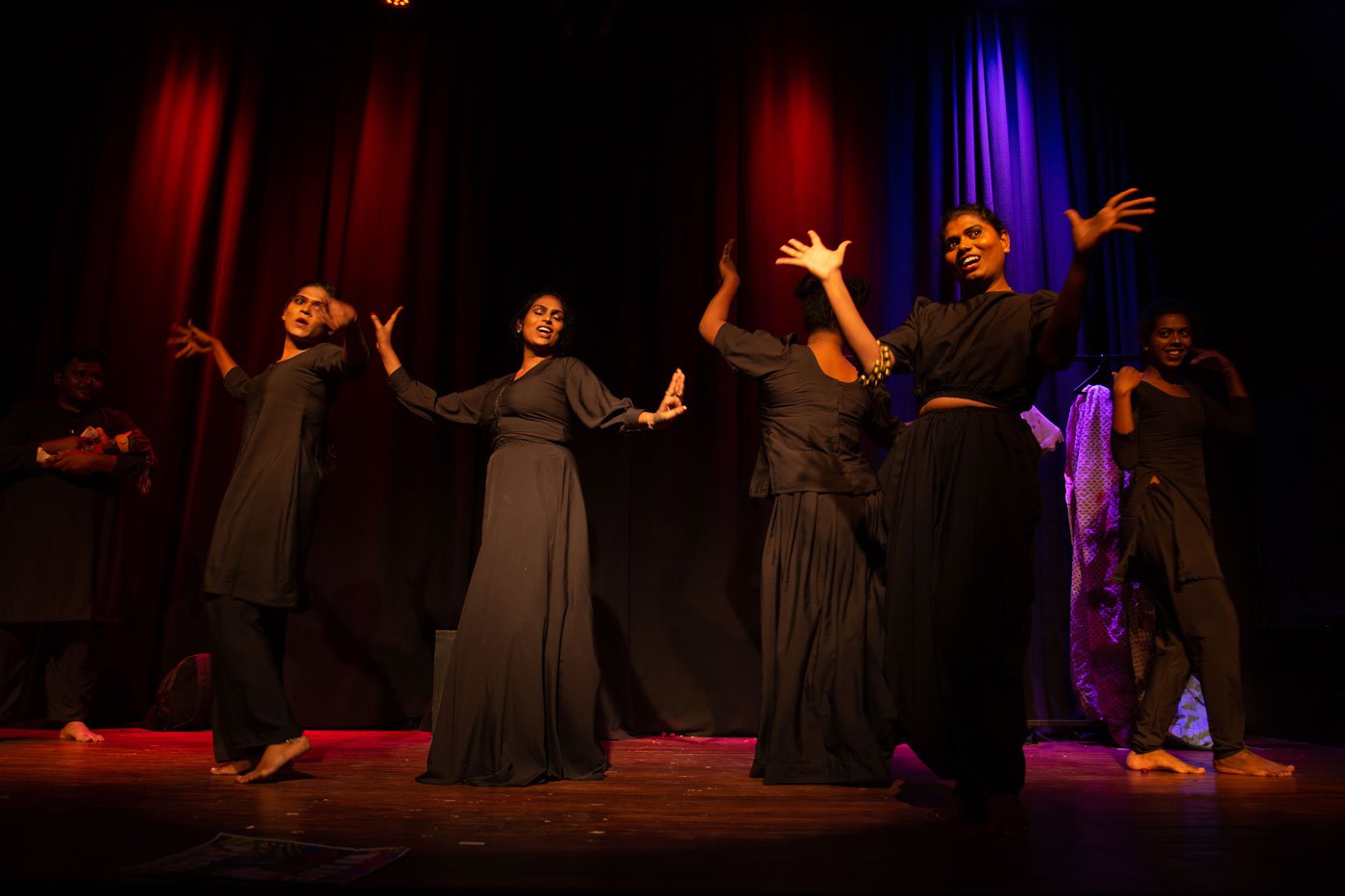
The artists depict the ways in which the community brings joy and celebration into their lives despite the sufferings and pain
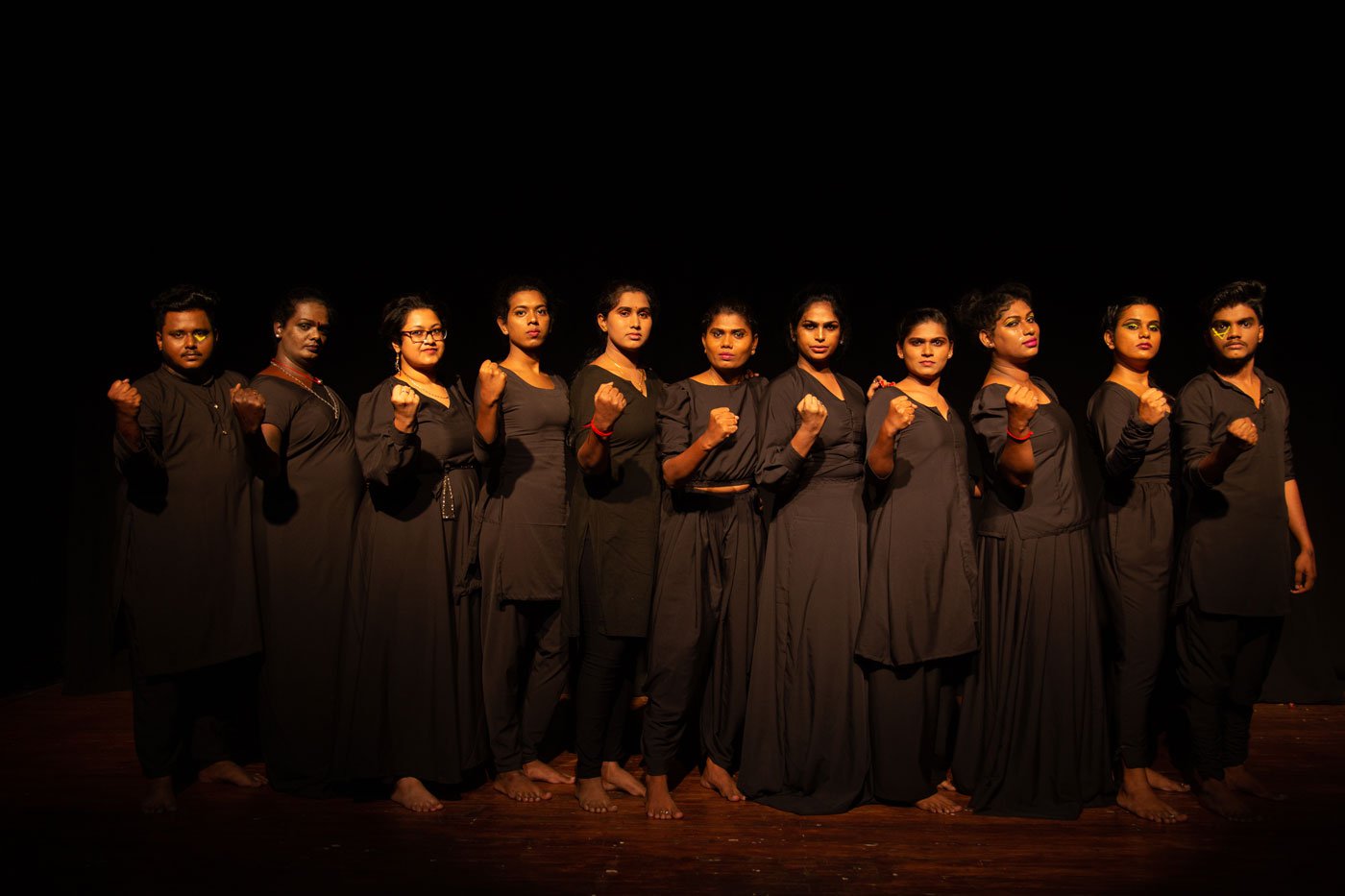
The team of artists who brought to life the forgotten history of trans community on stage through their play, Sandakaranga, held in November 2022
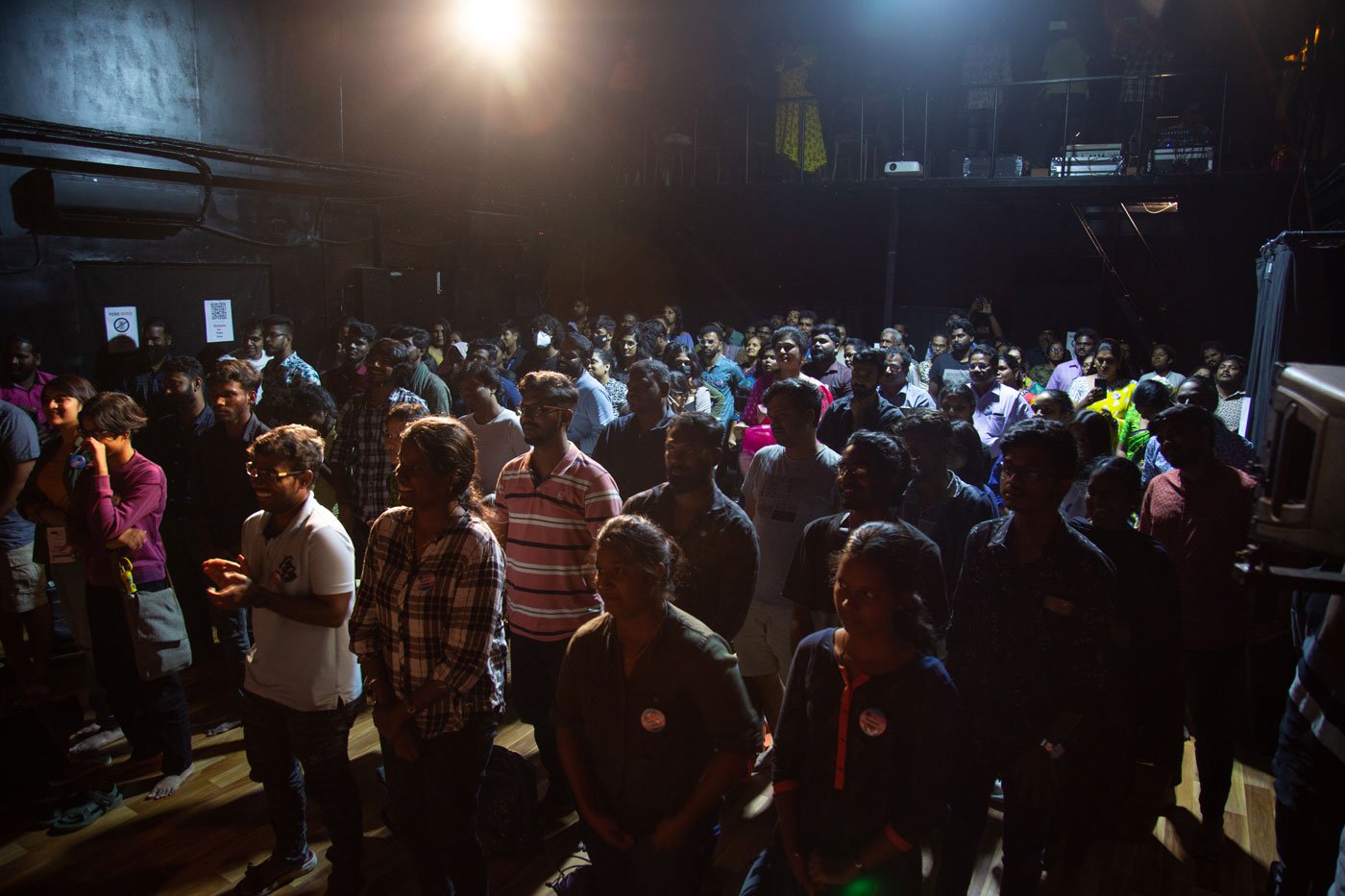
The audience giving a standing ovation after the play concluded on its debut night
